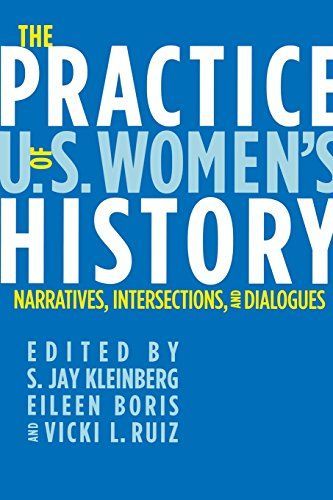
The Practice of U.S. Women's History Narratives, Intersections, and Dialogues
In the last several decades, U.S. women's history has come of age. Not only have historians challenged the national narrative on the basis of their rich explorations of the personal, the social, the economic, and the political, but they have also entered into dialogues with each other over the meaning of women's history itself. In this collection of seventeen original essays on women's lives from the colonial period to the present, contributors take the competing forces of race, gender, class, sexuality, religion, and region into account. Among many other examples, they examine how conceptions of gender shaped government officials' attitudes towards East Asian immigrants; how race and gender inequality pervaded the welfare state; and how color and class shaped Mexican American women's mobilization for civil and labor rights.